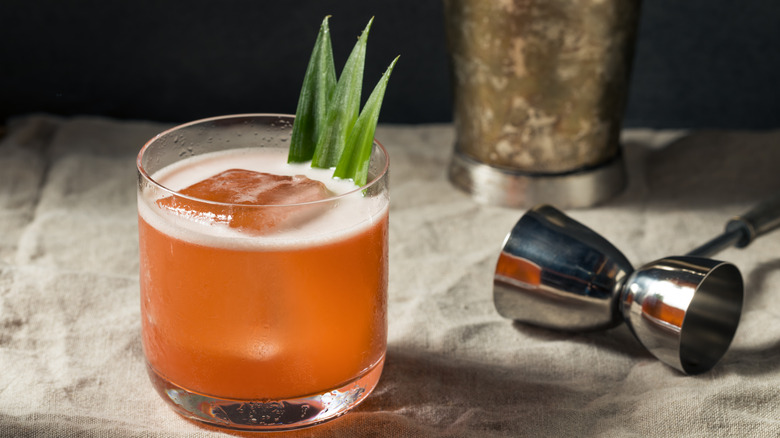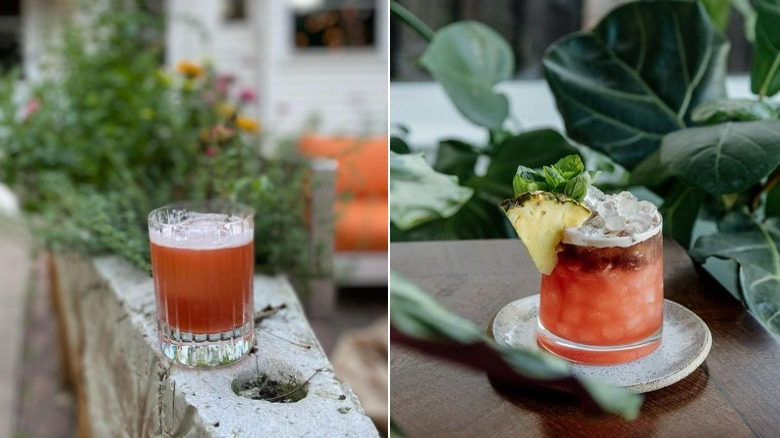The Polarizing Ingredient In Some Jungle Bird Cocktails
Tiki drinks such as the jungle bird cocktail, pictured above, have sometimes been interpreted as frivolous, fruity rum drinks, according to The New York Times. The "sweet-ification" of tiki drink culture, which was a gradual, decades-long process, may have had a hand in bringing about the demise of the tiki drink, which, by the 1990s, was a fait accompli. That said, it could be argued that if it weren't for tiki culture's decades-long descent into slushie-like frivolity, there might have been no reason to reinvent the genre starting in the early aughts. And that is exactly what happened.
As the New York Times explains, tiki drinks were ripe for reinvention right around the time that bartenders started calling themselves mixologists (or rather, calling themselves mixologists — again — that moniker having been a thing at the turn of the 19th century as well, per Serious Eats). The new craft cocktail ethos practically demanded the revisiting of the original recipes with an eye to dialing down the sweet-and-fruity vibe in favor of a more sophisticated cocktail, one with unexpected notes of bitter, sharpness, and spice, according to PUNCH. That said, the jungle bird was one tiki drink that needed little tweaking since it already called for Campari, a red liqueur that delivers all of the above.
Nevertheless, changes were made, including the addition of a controversial "new" ingredient, blackstrap rum.
Blackstrap rum has people divided
The jungle bird cocktail got its name from the Aviary Bar, where it was first concocted and served in bird-shaped porcelain (via Liquor). The original recipe is believed to have called for generic "dark rum," as well as Campari, pineapple juice, lime juice, and simple syrup. In 2002, the ante was seemingly upped to "Jamaican rum" by the author of a book called "Intoxica." At the same time, however, a movement among mixologists involved swapping out ordinary Jamaican rum for blackstrap rum. And it caught on like a flaming tiki drink from the 1940s.
According to Epicurious, blackstrap rum lends the jungle bird a maple-like flavor that contrasts nicely with the acidity of the pineapple and lime juices and also lends itself as a smooth backdrop for Campari's bittersweet herbaceous notes. The only problem, it seems, is that not everyone is a fan of blackstrap rum. Some don't like it, condemning it as "gross" on a good day. Others criticize it for being the opposite of handcrafted, which is to say it's produced industrially, and its flavor may be derived, in part, from sweeteners and other additives. And yet some still use it in their jungle birds because it sets the jungle bird apart from other rum cocktails. If you're curious about how blackstrap rum can enhance your jungle bird, here is our recipe for a jungle bird cocktail, which uses blackstrap rum as its base alcohol.

